Manchester United's draw at Liverpool was 'vintage Jose Mourinho'
- Published
- comments
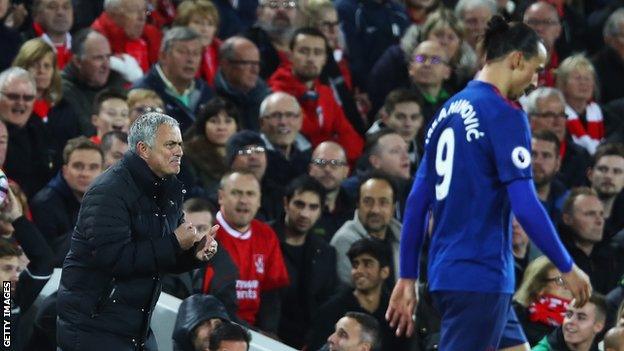
Zlatan Ibrahimovic (right) looked off the pace at Anfield
Jose Mourinho has played the part of killjoy at Liverpool before - and he had no hesitation in puncturing the optimism growing around Jurgen Klopp's side on his first Anfield visit as Manchester United manager.
It was in April 2014 when he oversaw Chelsea's 2-0 win at Anfield that caused Liverpool to stumble and lose the title almost on the finishing line - and he was cast in the role of villain again by The Kop on Monday.
Manchester United's stifling, smothering performance in a mediocre goalless draw bore all the hallmarks Mourinho has perfected in a career laced with success, and the travelling fans seemed happy enough at the final whistle.
So what did this attritional 90 minutes say about Mourinho's Manchester United?
Manchester United's new reality
In many ways, this was vintage Mourinho, a throwback to his great nights with Chelsea and Inter Milan when opponents had the creativity strangled out of them, floundering on the meticulous defensive organisation the Portuguese had brought into play.
Is it, however, the Manchester United way? It is certainly a far cry from the flamboyance and all-out attacking intent of the Sir Alex Ferguson era.
Times, however, have changed and so have Manchester United.
Mourinho has not inherited an all-conquering force of former years. Management's arch-pragmatist happily flicked through his old tactical playbook at Liverpool and will make not a single apology for doing so.
For all the social media chatter and criticism from Liverpool fans, where Mourinho's crime appeared to be a refusal to allow Klopp's side to play in a manner in which they would win, United's manager was realism personified.
It was functional, not easy on the eye and brought predictable accusations that Mourinho had parked the bus. He will respond, with justification and a point in his pocket, that United came away with a draw at a place plenty will leave empty-handed this season.
United had only 35% possession, their lowest figure since statisticians Opta started compiling in 2003, although Mourinho returned to Anfield's media room after his main press briefing to dispute the finding, claiming they actually had 42% of the ball.
Juan Mata was confined to the bench, alongside Wayne Rooney, while Marouane Fellaini was back in midfield in a big, physical side designed to give United strength all over the pitch.
And man-of-the-match Ander Herrera was key in midfield, not giving Philippe Coutinho or Roberto Firmino any time or space. The Spaniard made 11 interceptions, the most by any Premier League player this season.
Mourinho deals in realism not romance. And this was a realistic approach - one United's fans who still crave the devil-may-care approach of the Ferguson era will have to get used to.
This was Mourinho's analysis, and it was as far removed from Ferguson's mantra as it was possible to get as he said: "It is not the result we wanted but it is a positive result. It is a result that stops a direct opponent getting three points at home so not a bad result.
"I think it was a positive performance. This is a point that stopped them winning three."
Man Utd's Jose Mourinho is back to his controlling best
Do Manchester United have an identity?
Former Old Trafford great Paul Scholes helped set the agenda for Manchester United's meeting with Liverpool by saying they have yet to form an identity under Mourinho.
Ironically, United looked more like a Mourinho team against Liverpool than they have at any time since he arrived in the summer.
And yet there is weight to Scholes' observation.
The Portuguese manager has to find a formula to accommodate a squad that still looks to mix-and-match and which has yet to get the best out of £89m midfielder Paul Pogba, who was pedestrian again.
Pogba, the world's most expensive player, delivered one cross that provided United's best chance but which was headed badly off target by Zlatan Ibrahimovic.
Too often, though, Pogba either lost, or was knocked out of, possession too easily.
Zlatan himself, the ageing centrepiece of United's attacking plan, looked ponderous and off the pace and made a complete mess of their best opportunity, seemingly caught in several minds as he headed wide.
Mourinho has questions to answer before he will be able to present evidence of the identity Scholes desires, although this was a display of real steel and organisation.
It is not just Wayne Rooney's long-term future that is up for debate. Where will he utilise Marcus Rashford, Anthony Martial and Mata when they are all available - and does anyone know where £25m Henrikh Mkhitaryan is, let alone where he might play?
Mourinho's United are still, understandably, a work in progress but more cohesion and structure will be expected soon given the money spent in the summer.
For now, though, United can feel a draw at Liverpool represents a glass half full.
Liverpool 0-0 Man Utd: Jose Mourinho says side controlled game and crowd
Liverpool have identity - but it's early days
It was exactly a year ago to the day since Klopp took charge of his first game as Liverpool manager, a goalless draw at Tottenham.
And it has been very clear from day one how the German wants Liverpool to play. He wants a passionate, intense, aggressive attacking style that taps into the emotions of The Kop and the extended Anfield, whose towering new stand was gracing its first night game on Monday.
Klopp's approach worked a treat against pliable opponents such as Leicester City and Hull City at home, against whom they scored a total of nine goals, and when facing Arsenal and Chelsea away.
Liverpool did not find it so easy in defeat at Burnley, when manager Sean Dyche ensured his side sat in a rigid defensive shape and let Klopp's team have the ball and against opponents as obdurate and organised as Manchester United.
Mourinho ensured United set about Liverpool from the start, making sure they could not gain momentum and intensity. When it came to high pressing, United started by turning the tables on Liverpool. It worked to perfection as the home side became hurried into making too many mistakes and poor decisions.
Liverpool 0-0 Man Utd: Jurgen Klopp says result better than performance
Liverpool will have better days than this but one factor that was made clear is the increasing importance of Adam Lallana, who was only fit enough to start as a substitute.
Klopp's side lacked drive and invention without the fast feet and creation of Lallana and it was no coincidence Liverpool's threat increased from the moment he was introduced for the struggling Daniel Sturridge on the hour.
Liverpool lacked the balance and that swift movement the triumvirate of Lallana, Coutinho and Firmino gives them until that change. It is a sign of Lallana's rapid development under Klopp.
Georginio Wijnaldum's injury also robbed them of composure that would have served Liverpool well in a game Klopp described as hectic - although the German has always given the impression of revelling in hectic.
The rising frustration around Anfield after the stadium started awash with expectation was an illustration of the success of Mourinho's approach - but also perhaps the sound of realisation that Klopp and Liverpool still have plenty of room for improvement.
- Published17 October 2016
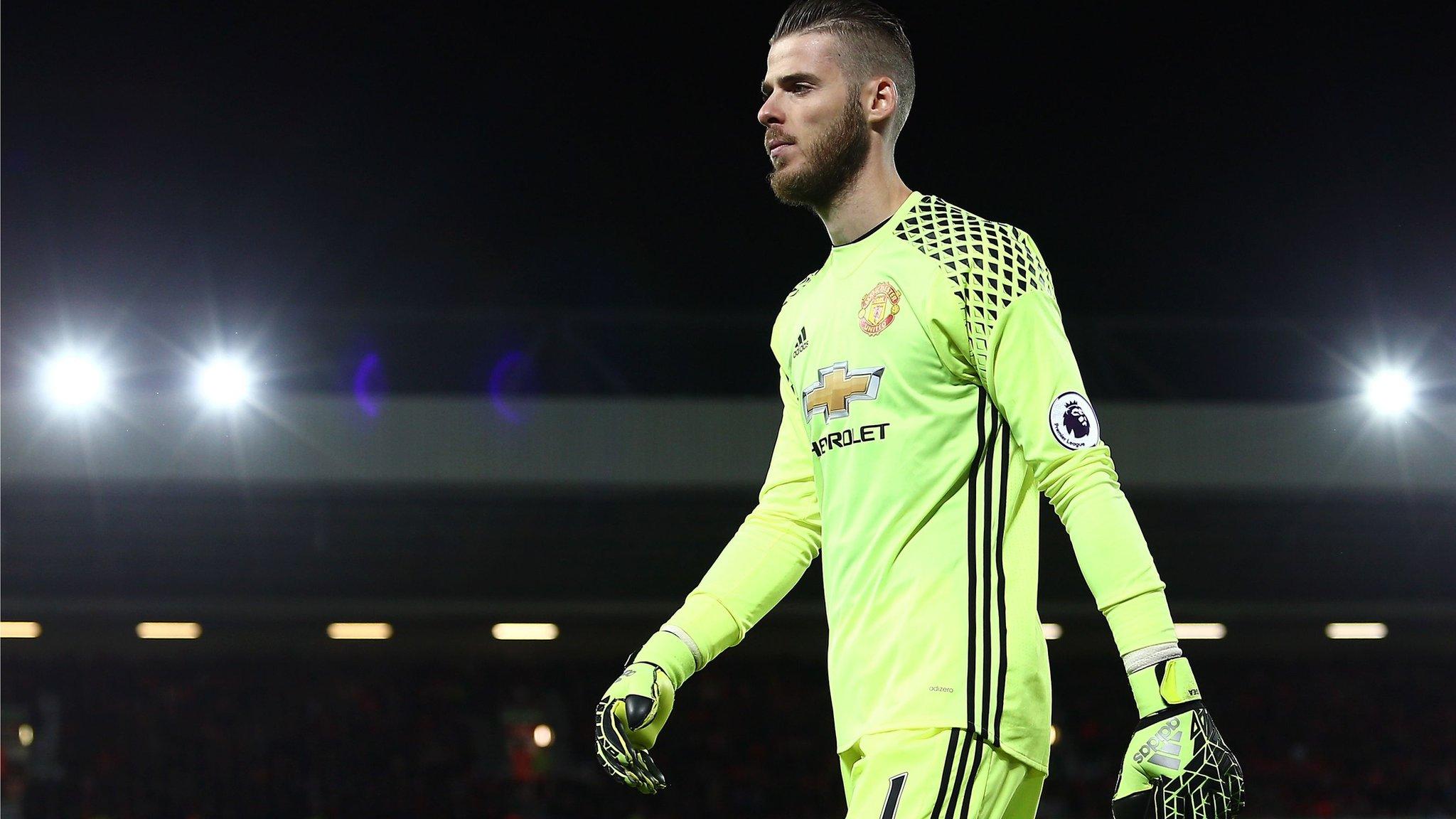
- Published18 October 2016
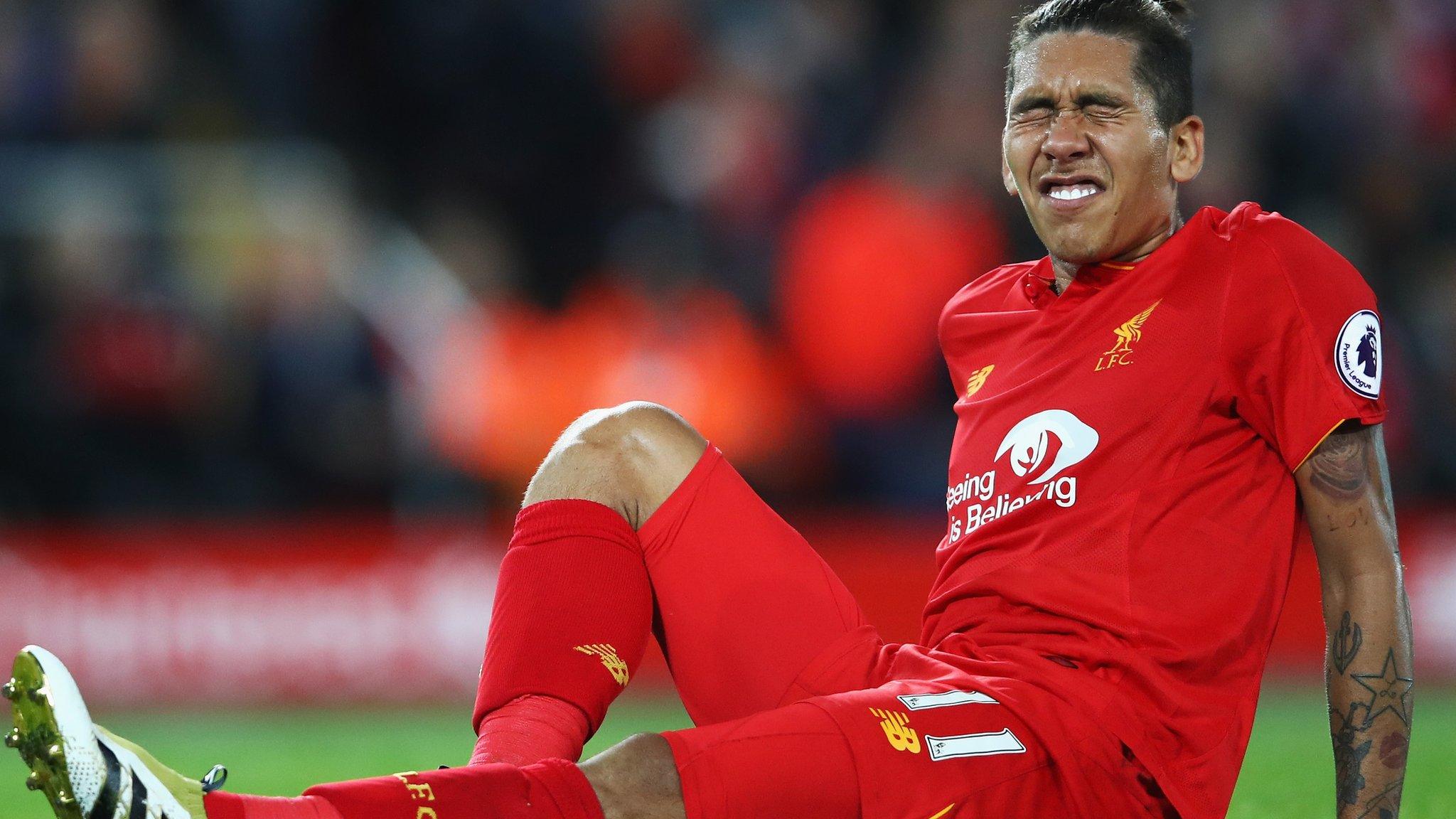
- Published10 October 2016
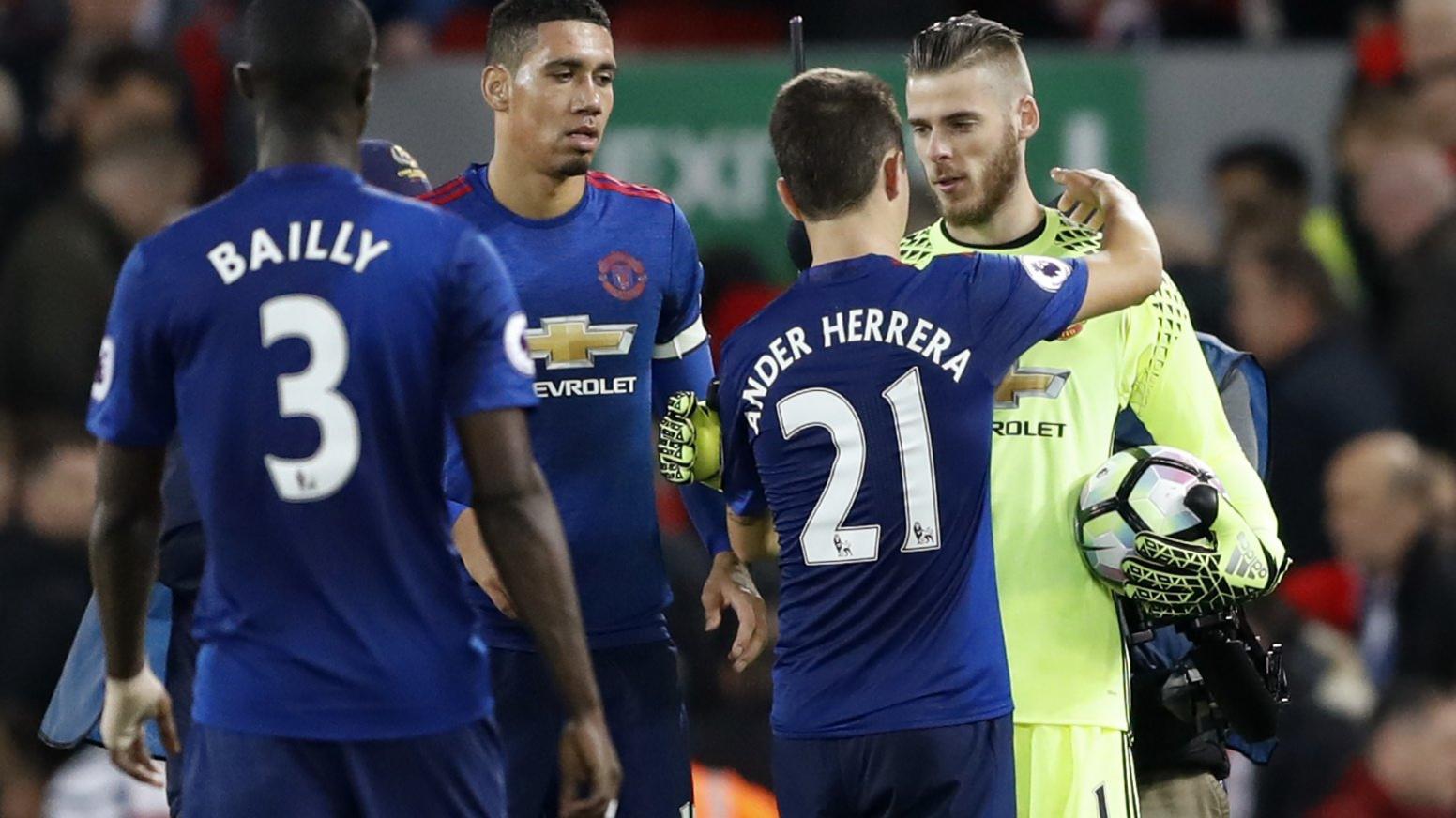
- Published25 April 2014
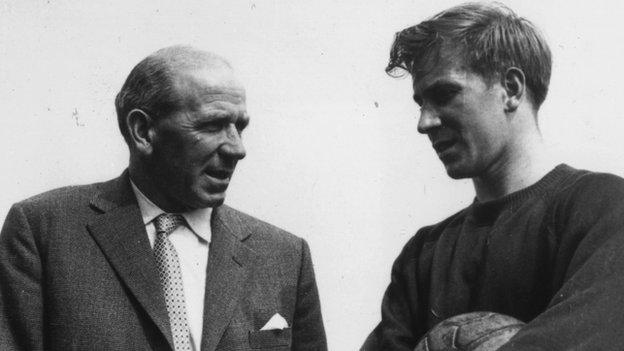
- Published14 January 2018
- Published8 August 2017
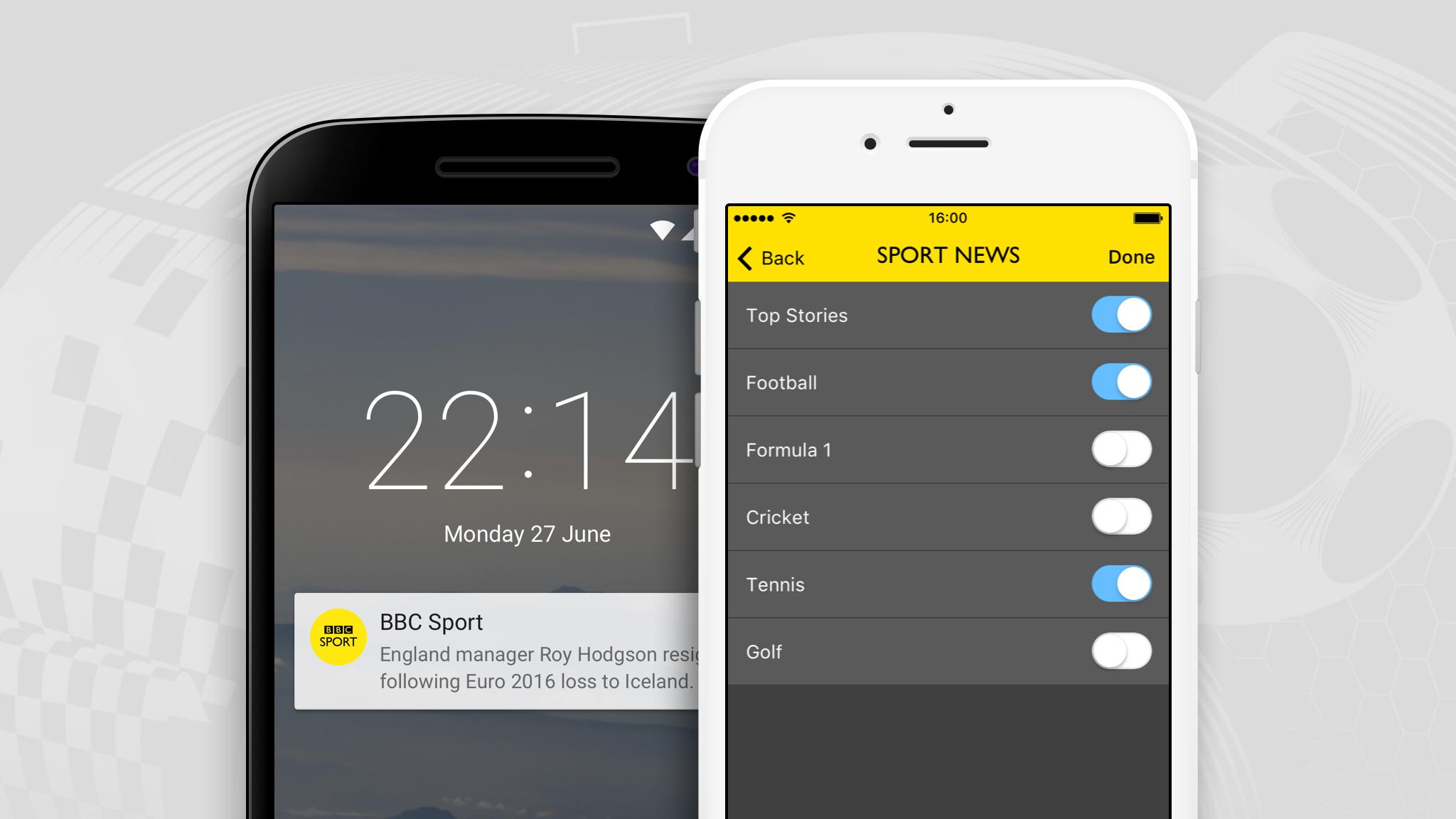
- Published7 June 2019

